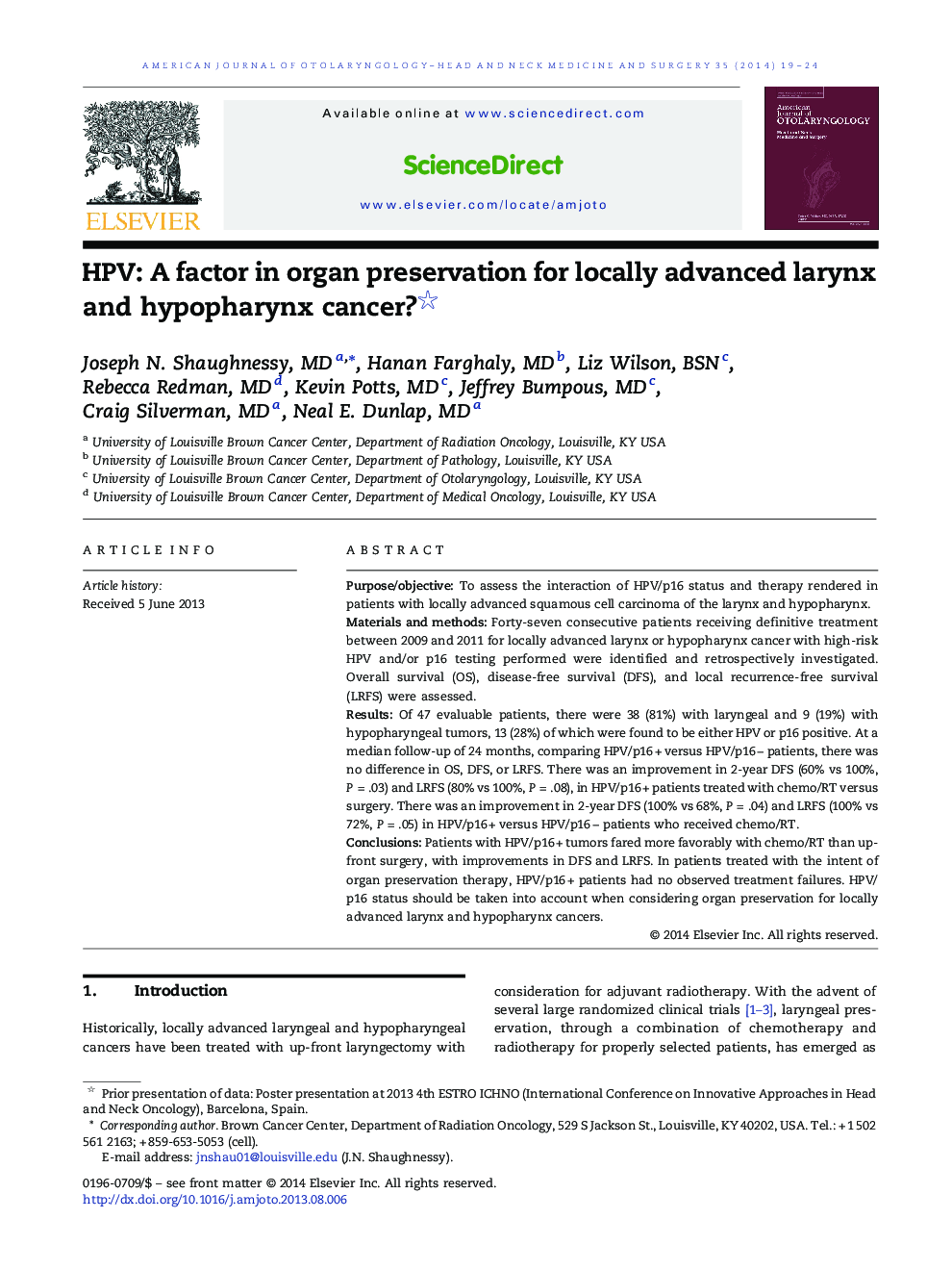| Article ID | Journal | Published Year | Pages | File Type |
|---|---|---|---|---|
| 4103692 | American Journal of Otolaryngology | 2014 | 6 Pages |
Purpose/objectiveTo assess the interaction of HPV/p16 status and therapy rendered in patients with locally advanced squamous cell carcinoma of the larynx and hypopharynx.Materials and methodsForty-seven consecutive patients receiving definitive treatment between 2009 and 2011 for locally advanced larynx or hypopharynx cancer with high-risk HPV and/or p16 testing performed were identified and retrospectively investigated. Overall survival (OS), disease-free survival (DFS), and local recurrence-free survival (LRFS) were assessed.ResultsOf 47 evaluable patients, there were 38 (81%) with laryngeal and 9 (19%) with hypopharyngeal tumors, 13 (28%) of which were found to be either HPV or p16 positive. At a median follow-up of 24 months, comparing HPV/p16 + versus HPV/p16 − patients, there was no difference in OS, DFS, or LRFS. There was an improvement in 2-year DFS (60% vs 100%, P = .03) and LRFS (80% vs 100%, P = .08), in HPV/p16 + patients treated with chemo/RT versus surgery. There was an improvement in 2-year DFS (100% vs 68%, P = .04) and LRFS (100% vs 72%, P = .05) in HPV/p16 + versus HPV/p16 − patients who received chemo/RT.ConclusionsPatients with HPV/p16 + tumors fared more favorably with chemo/RT than up-front surgery, with improvements in DFS and LRFS. In patients treated with the intent of organ preservation therapy, HPV/p16 + patients had no observed treatment failures. HPV/p16 status should be taken into account when considering organ preservation for locally advanced larynx and hypopharynx cancers.
